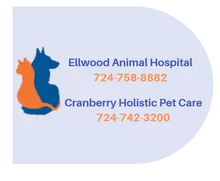The cooler autumn months can bring lots of great opportunities to share time with pets both indoors and outdoors. While enjoying the cooler months, the following tips can help keep your pet safe and healthy.
- Continue flea and tick preventive as recommended by your veterinarian throughout the cooler months. Fleas will be more likely to infest your pets and home at this time of year. The infestations occur because owners stop flea prevention, erroneously thinking that pets cannot pick up fleas after a frost. Many owners treat only the allergic pets or only the ones that go outdoors for fleas while other pets in the household continue to support ever-increasing flea egg populations. In Autumn, contrary to popular belief, the fleas on wildlife will still be actively reproducing and leaving eggs in yards. When pets go outdoors (or rodents come indoors), the fleas are attracted to warm bodies and get a free ride indoors, where they can deposit thousands of eggs. These infestations need to be treated with reliable and safe products on ALL the pets in the household, not just the ones that go outdoors. Seek your vet’s advice for the safest and most economical means of control.
- If fleas do infest your pet, DO NOT bathe with Dawn. I have had many clients tell me that this recommendation is being made by staff working in pet stores and reception desks. Dawn detergent is not an effective method of flea control. It will dry out your pet’s skin, as it is very great at pulling oils from the skin. The reason vets recommend using Dawn is that it is good at removing petroleum based toxins from the skin. When a pet has a toxicity reaction to an insecticide, we can remove some of the product by bathing in Dawn. When I do so, I use an emollient shampoo and conditioner afterward to replace skin moisture.
- Ticks are more likely to cause Lyme disease, Ehrlichiosis and Anaplasmosis in humans and pets during the cooler Autumn and Spring months. This is another reason to continue your pet’s tick prevention in Autumn. Many of the products my clients have used for years are no longer providing reliable tick control. Be sure to check with your vet to see which products are working in your area, as resistance can develop over time. Remember that your veterinarian has years of training regarding safety and effectiveness of these medications, as well as experience treating toxicity reactions which occur with many chemicals clients buy over the counter.
- If ticks do attach themselves to your pet, be sure to remove them fully or see the vet to do so. Ask your vet for antibiotics to prevent Lyme Disease and when to have your pet retested for Lyme Disease. I recommend routinely testing dogs every 6 months for tick carried illnesses.
- With longer nights, be sure to keep reflective collars on pets while walking. Do not let pets out unattended in the evening. Increased risk of encounters with wild animals can lead to injuries from raccoons, opossums, and coyotes. Coyotes can easily kill small cats and dogs, and they have increased in numbers surrounding residential areas.
- Assure pets are up to date on Rabies vaccines. Increasing evening activity of wild animals can mean increased risk of rabies exposure.
- Allergy problems often increase in Fall, as homes are drier, and pollens, molds and flea exposure increase pets’ chances for skin and ear infections. Seek veterinary help for your pet, if he is itching excessively.
- Be certain to use humidifiers in your home, if you and your pets are suffer from itchy, dry skin. Slow release ceramides, Phytosphingosine and microencapsulated moisturizing skin conditioners can help prevent dry skin from turning into an infection. Many vets can help you find products with appropriate levels of these ingredients which will help your pet get through the Fall and Winter. Additionally, oral skin supplements and weekly or monthly time-release spot-on skin therapies can solve lots of dry skin-related ailments.
- Autumn pet toxins include vehicle coolants and antifreeze, yard chemicals, and rodenticides (rat or mouse poisons). Assure your pets don’t have access to these chemicals. If they do get access to toxins of any kind, call your vet immediately. Waiting for symptoms of antifreeze toxicity to develop will lead to death from kidney failure.
My advice to pet owners is to enjoy this time outdoors with pets as much as possible before the cold weather hits. Keep pets on safe, effective flea and tick preventive program year round. Be sure to tell your vet if your pet has had any fleas or ticks, so she can advise you about the need for deworming for tapeworms (fleas carry tapeworms to pets) and blood testing for Lyme Disease.
